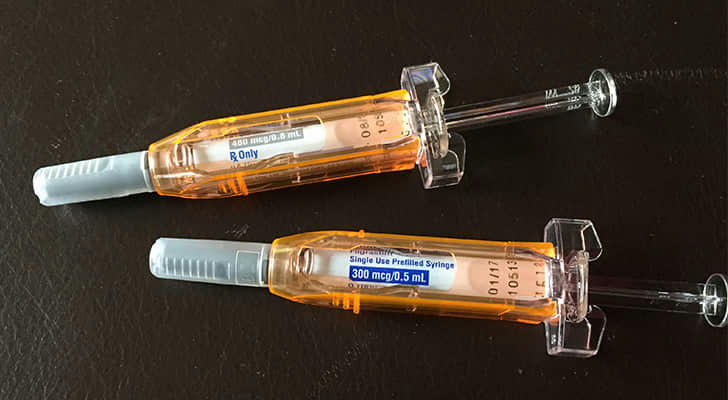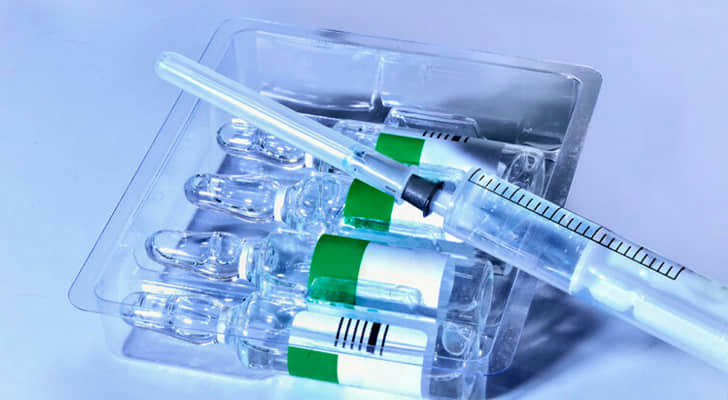How Neupogen Can Transform Your Treatment
What is Neupogen?
Neupogen (filgrastim) is a key player in the fight against infections for those undergoing chemotherapy for cancers that don't affect the bone marrow. By boosting your levels of neutrophils—those vital white blood cells that fend off infections—Neupogen helps protect you from the side effects of chemotherapy that can lower your neutrophil count.
But Neupogen doesn't stop there. It also steps in to help those with acute myeloid leukemia (AML) by ramping up white blood cell production and shortening fevers during chemotherapy. For patients undergoing bone marrow transplants or dealing with severe chronic neutropenia (a condition with very low neutrophil levels), Neupogen is a crucial ally.
Additionally, if you've had a high dose of radiation, Neupogen can boost your chances of survival by supporting your bone marrow. It's part of a class of medications known as colony-stimulating factors, which help your body churn out more neutrophils.

Warnings
While Neupogen is a powerful tool, it can come with serious risks. It may lead to acute respiratory distress syndrome (ARDS) or a rare but severe condition called capillary leak syndrome. If you experience symptoms like fever with difficulty breathing, a stuffy nose followed by extreme tiredness, sudden swelling, or rapid weight gain, get medical help right away.
There's also a risk of spleen issues—enlargement or even rupture. If you feel pain in your upper left abdomen or shoulder, contact your doctor immediately.

What You Need to Do Before Taking
You should avoid using Neupogen if you're allergic to filgrastim or other similar medications like pegfilgrastim or sargramostim. Neupogen might increase your risk of developing myelodysplastic syndrome (MDS) or AML if you have certain medical conditions, so it's a good idea to discuss this risk with your doctor.
To ensure Neupogen is safe for you, let your doctor know if you've had:
•Sickle cell anemia •A latex allergy •Radiation treatment •Kidney disease
It's not clear if Neupogen is harmful to unborn babies, so inform your doctor if you are pregnant or planning to become pregnant. Ask your healthcare provider if it's safe to breastfeed while using this medication.
How to Use Neupogen
Follow your doctor's instructions carefully when using Neupogen. Make sure to adhere to all directions on your prescription label and read any provided guides or instructions. Your doctor might adjust your dose from time to time.
Neupogen can be administered through an intravenous (IV) infusion or injected under the skin. Your healthcare provider can teach you or your caregiver how to give these injections at home.
Your dose is based on your weight, so it might change if your weight fluctuates. Your provider will instruct you on where to inject Neupogen, and you should avoid using the same spot repeatedly or injecting into areas that are tender, bruised, or have scars.
Never adjust your dose or stop taking Neupogen without consulting your doctor. If you switch to a different brand or form of this medicine, your dose might need adjusting. Use only the specific medicine your doctor prescribes and don't change brands without approval.
Prepare each injection just before giving it. If the medicine looks cloudy or has changed color or contains particles, contact your pharmacist. Don't reuse needles or syringes; dispose of them properly in a puncture-proof container.
If you're receiving Neupogen with chemotherapy, make sure to inject it at least 24 hours before or after your chemotherapy dose. Regular blood tests will be needed to monitor your response and adjust the dosage as needed. Inform any healthcare provider treating you that you're using Neupogen, as it can affect certain medical tests.
Store Neupogen in the refrigerator, protected from light. Don't freeze or shake it. Allow the medicine to reach room temperature for 30 minutes before using it, but don't leave it out for more than 24 hours. Dispose of any unused medicine after one use.

What Side Effects does It Have
Seek emergency help if you experience signs of a serious allergic reaction to Neupogen, such as hives, rapid heartbeat, or difficulty breathing. Watch for symptoms of ARDS or capillary leak syndrome, including fever with shortness of breath or sudden swelling.
Neupogen can also cause your spleen to swell or rupture. Contact your doctor if you have pain in your upper left abdomen or shoulder.
Some common side effects during the injection include dizziness, nausea, or a headache. Report any severe symptoms like unusual bleeding, signs of sickle cell crisis, or kidney issues to your doctor.
Other potential side effects include:
•Fever •Pain •Cough •Nosebleeds •Anemia •Bone pain •Diarrhea •Headache •Numbness •Rash
This isn't a complete list of side effects. For any concerns, contact your doctor and report side effects to the FDA at 1-800-FDA-1088.

Interactions with Other Drugs
Avoid using Neupogen within 24 hours before or after chemotherapy or a bone marrow transplant. Inform your doctor about all other medications you're taking, including over-the-counter drugs, vitamins, and herbal products, as they may interact with Neupogen.
